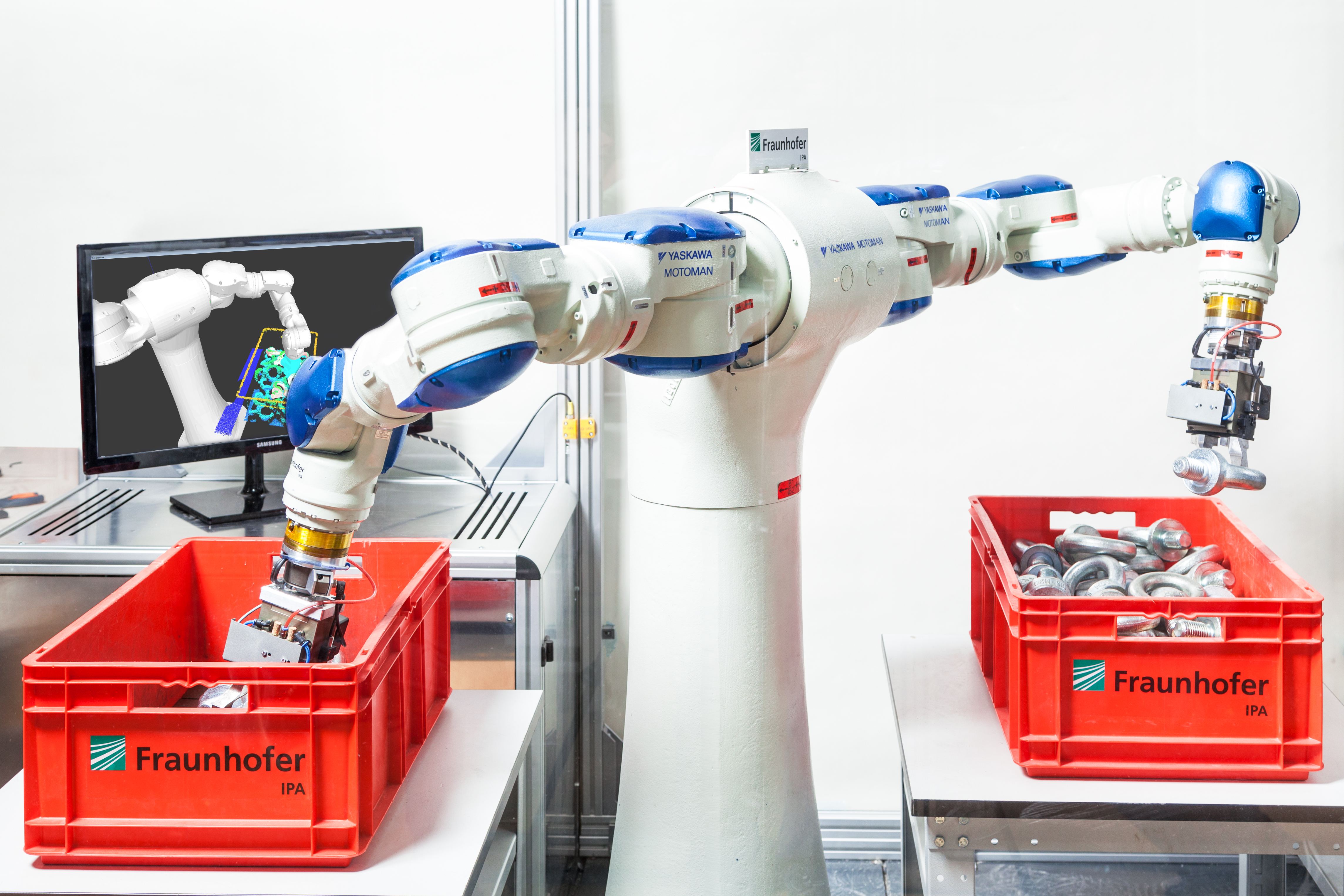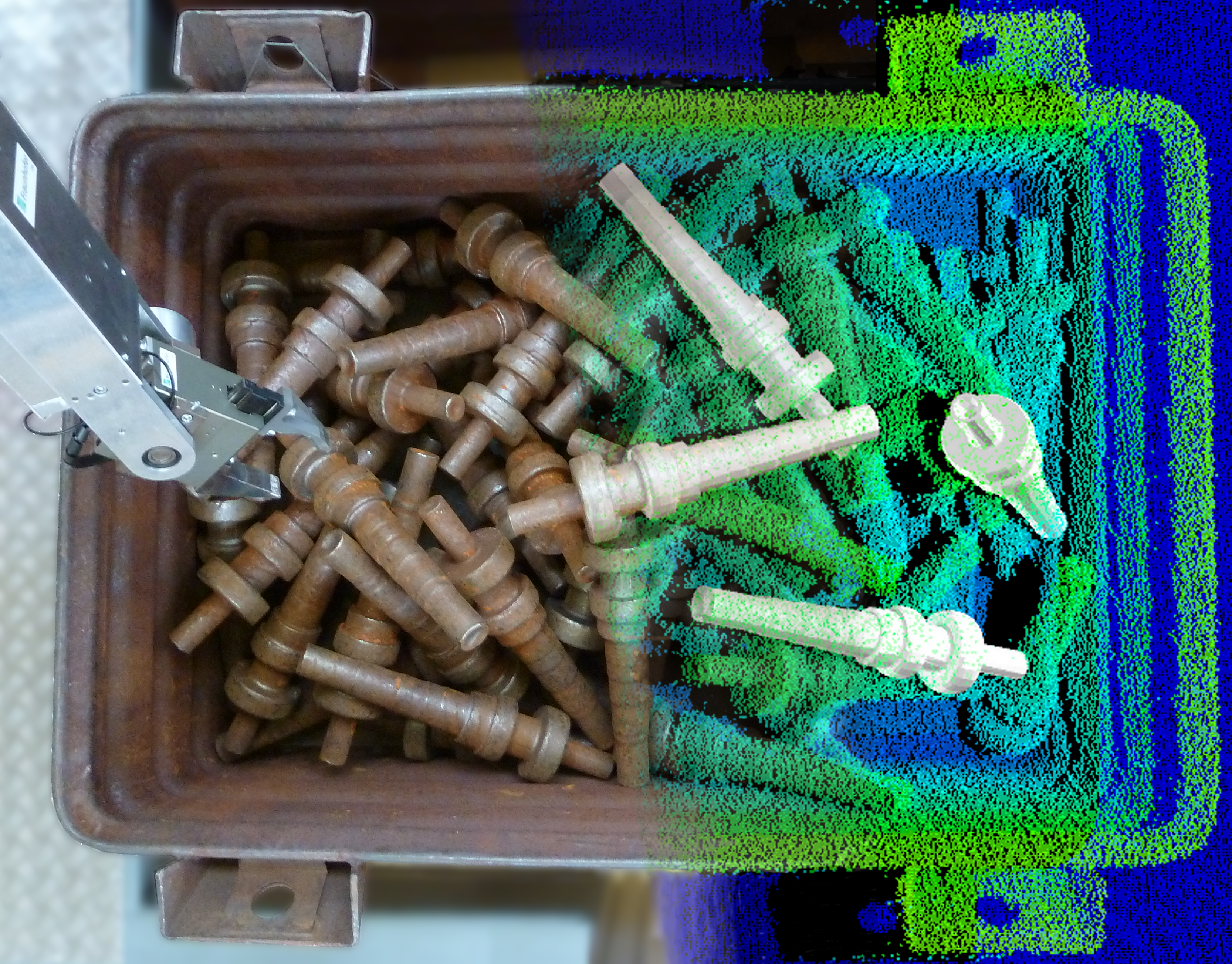Competition at IROS 2019
Object Pose Estimation Challenge for Bin-Picking
The Challenge
Knowing the pose of objects is a crucial prerequisite for many robotic grasping and manipulation tasks. The task of the challenge is to estimate the position and orientation of objects in scenes typical for bin-picking (based on depth images or point clouds). These scenarios consist of multiple rigid objects of the same type being chaotically stored in a bin. Object Pose Estimation is challenging due to the cluttered scene with multiple and heavy occlusions. The goal of this challenge is to compare different approaches and advance the development of novel methods for Object Pose Estimation. For this purpose, various labelled large-scale datasets are provided for this challenge.
The challenge will be held within the 2019 IEEE/RSJ International Conference on Intelligent Robots and Systems (IROS 2019) on November 5, 2019 in The Venetian Macao, Macau, China.
Participation
Who can participate?
The competition is open to everyone working or willing to work on Object Pose Estimation. People from industry and university working on the task are especially encouraged to participate in the challenge.
How to participate?
1. Register here.
2. Download the (training) dataset (available 3 months before the competition).
3. Choose or develop a method and prepare your routines.
4. The test datasets (comprising perspective depth images and the "parameter.json"-file) will be provied on the first competiton day.
5. Submit your results on the test datasets in the given json-format (translation vector t, rotation matrix R, and score for every instance found in the scene; one json-file per scene). Further details will be provied in time.
Evaluation metric
The performance of the different methods will be compared by using the metric provided by Romain Brégier et al. (paper 1 and paper 2). This evaluation methodology is suitable for rigid objects, for scenes of many parts in bulk (bin-picking scenarios), and properly considers object symmetries. Only the pose of objects that are less than 50% occluded are relevant for the retrieval. The visibility score in perspective projection is used as reference. The winner of the competition will be determined based on this metric.
To inspect the competition results, please register here.


